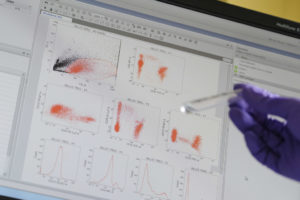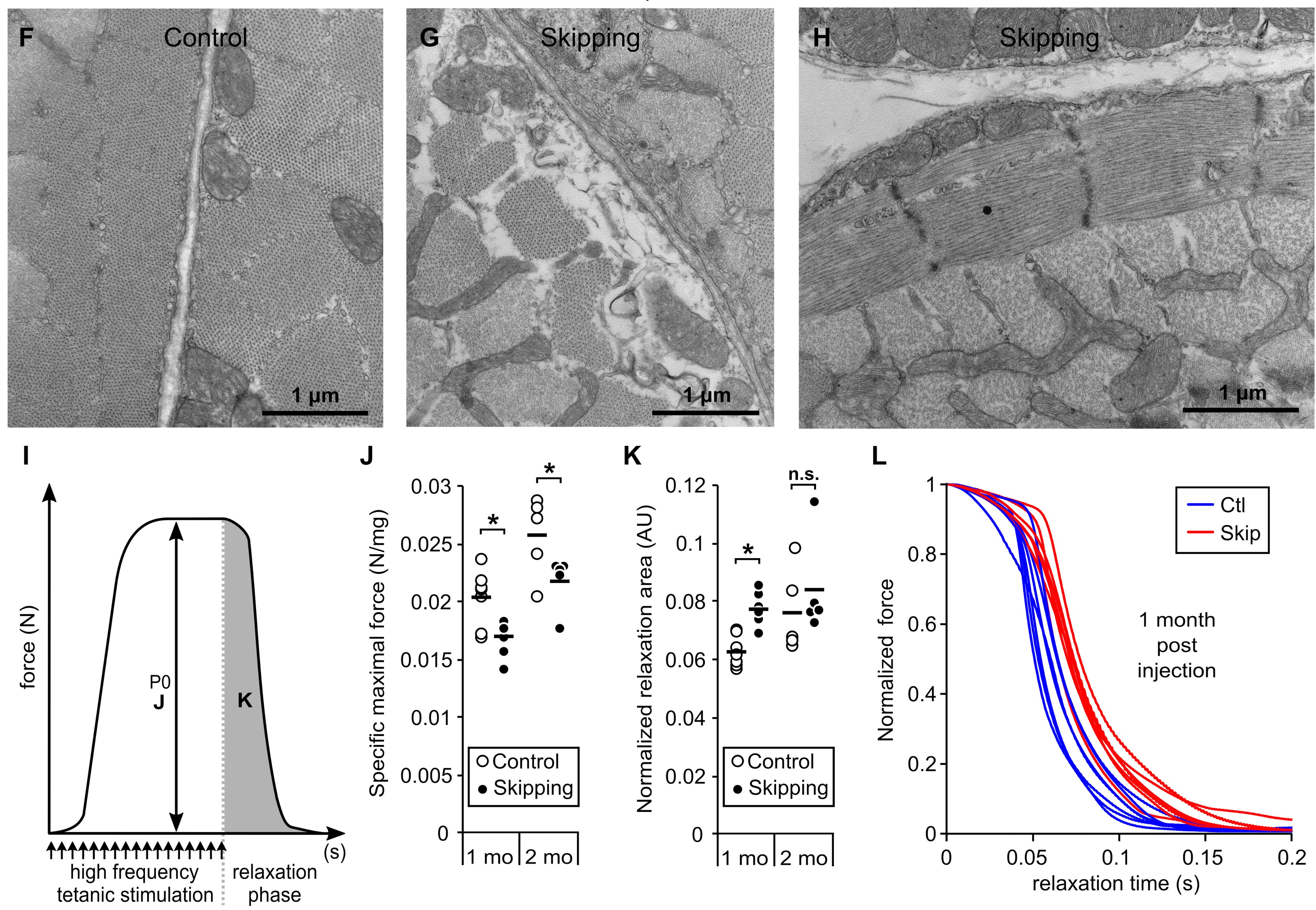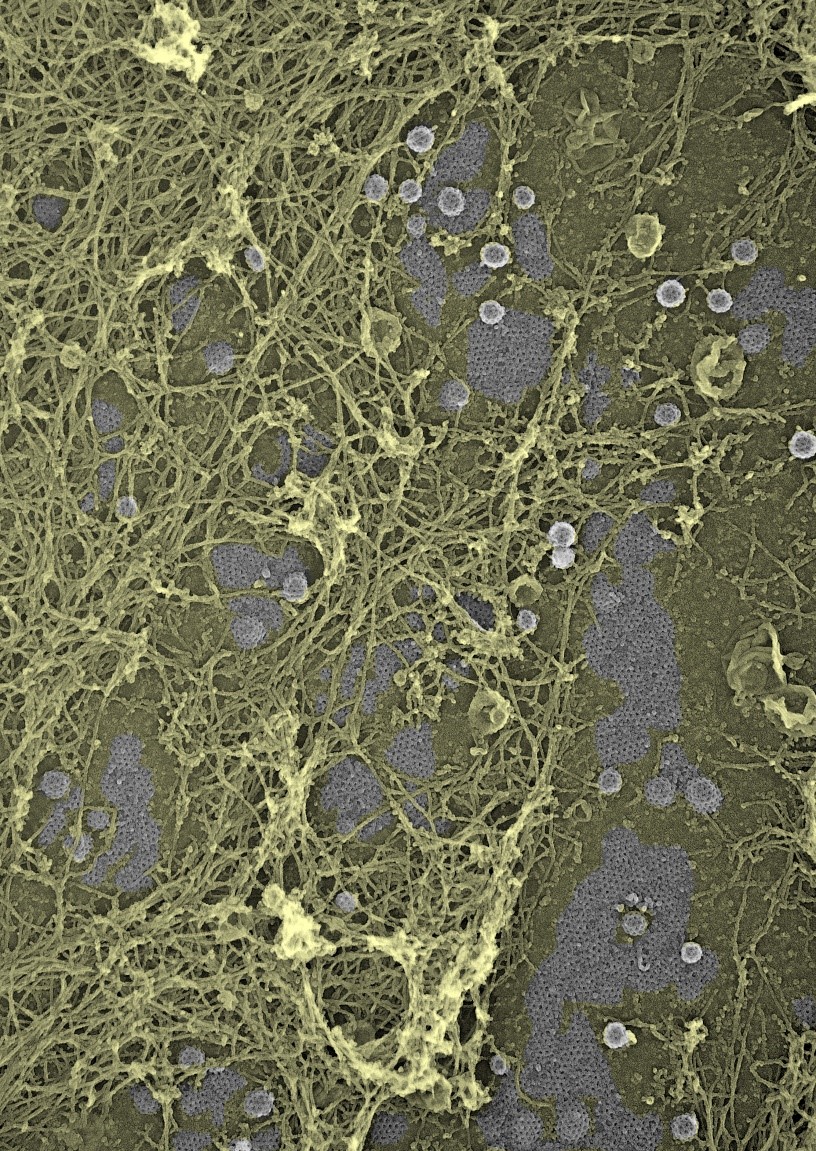We teamed up with splicing expert Denis Furling and neuron gardener Christophe Leterrier to find out how alternative splicing controls clathrin assembly during differentiation into neurons or muscle. We discovered exon 31 which is strongly included when cells form flat plaques.
By forcing exon 31 skipping in muscle cells we reverse the plasma membrane content from clathrin plaques to pits and by promoting exon inclusion we stimulated flat plaque assembly.
We also found that mis-splicing of exon 31 in congenital myotonic dystrophy was associated with reduced plaques. Forced exclusion of exon 31 in mice induced structural disorganization and reduced muscle force, highlighting exon 31 contribution for muscle tissue homeostasis.
This work identifies exon 31 splicing as a new modulator of clathrin coated structure plasticity and reveals how removing or adding an exon modifies clathrin polymerization mode. We propose that clathrin is genetically regulated to produce functional diversity.
Last but not least, this was mainly the work of brilliant post-doc Gilles Moulay.
We’d like to thank JCB-Journal of Cell Biology team who handled the ms so well despite the hard times, editors Andrea Marat, Pier Paolo Di Fiore and the reviewers who really helped improve it.
Enjoy






